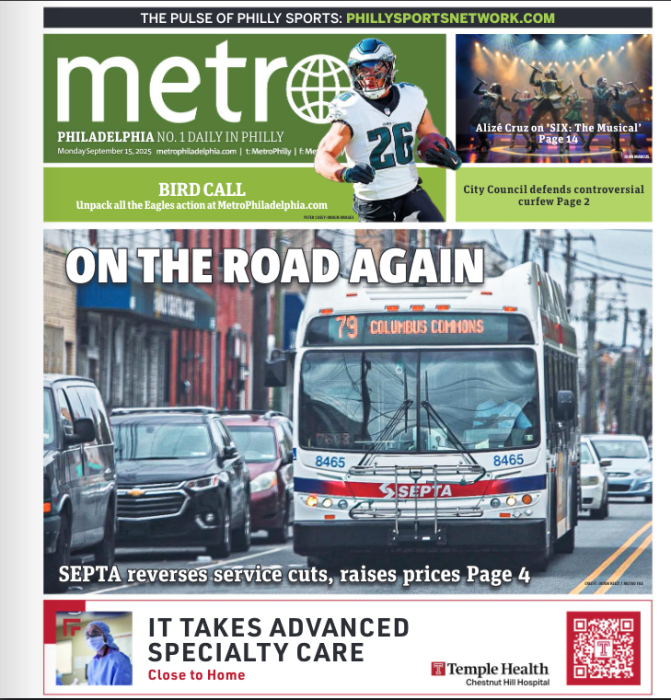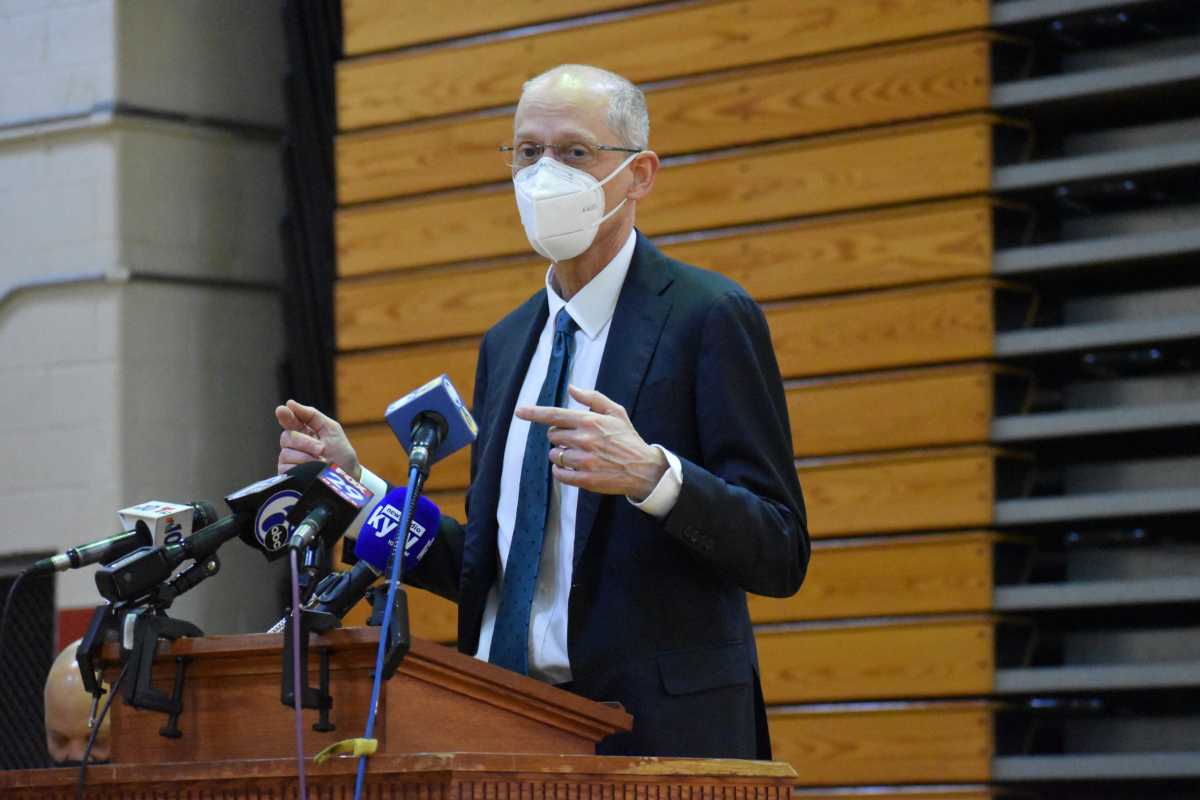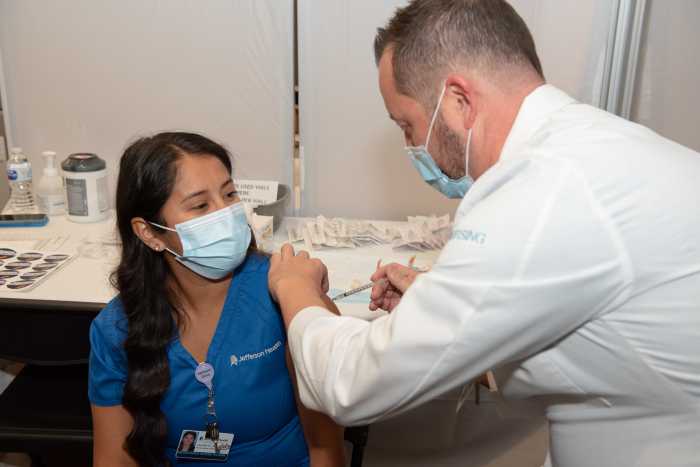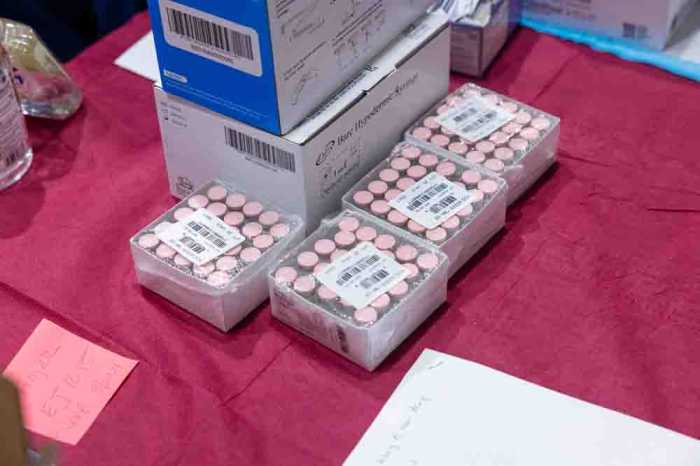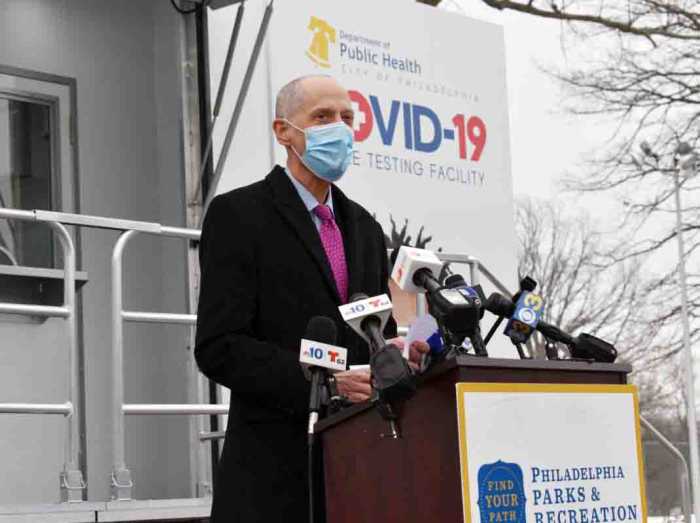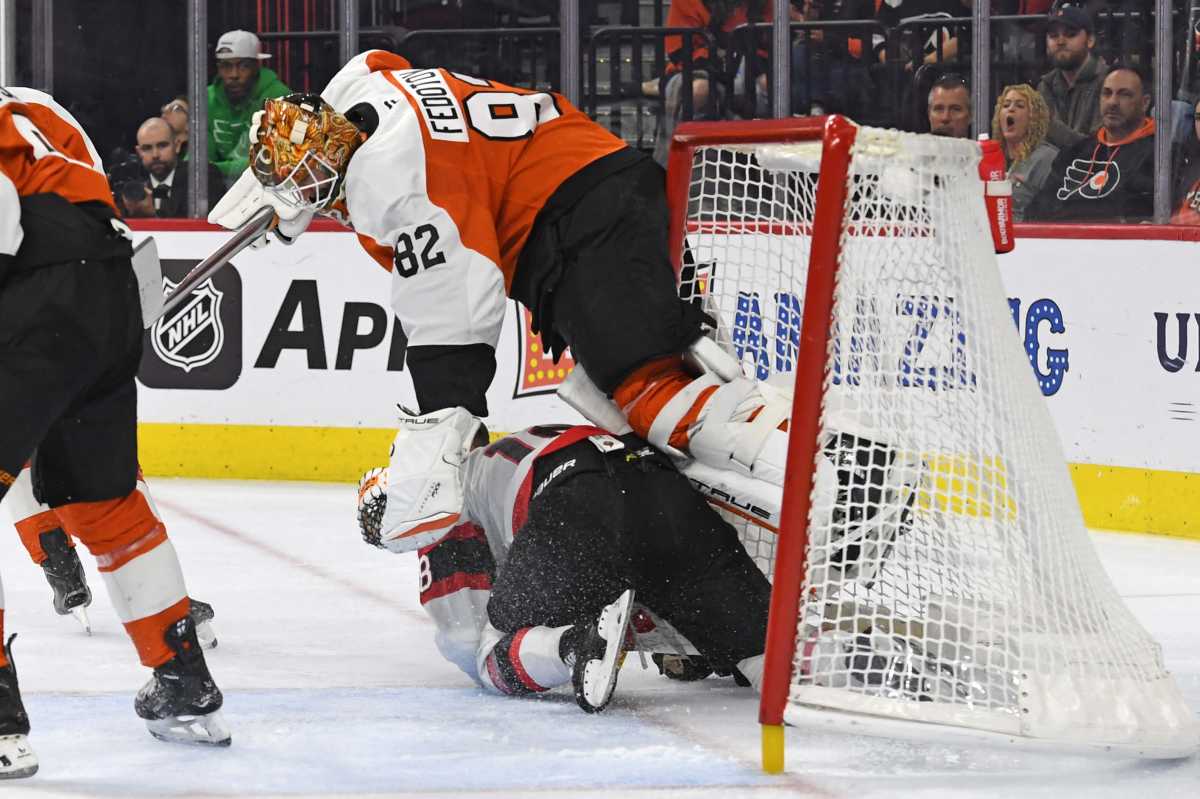Philadelphia will not follow the state’s lead in easing coronavirus restrictions early next month, city leaders said Tuesday.
Health Commissioner Thomas Farley said coronavirus cases and hospitalizations are increasing and that not enough people have been inoculated to significantly impact the trajectory of the pandemic.
“I’m concerned that the rest of the state is opening up too much,” he said during a virtual briefing with reporters.
Last week, Gov. Tom Wolf’s administration said restaurants will be able to open at 75% capacity indoors and offer bar service beginning Sunday, April 4.
In addition, event organizers will be permitted to increase occupancy to 25% at indoor venues and 50% outdoors, as long as attendees can maintain 6-foot distancing. Capacity limits will also be raised to 75% for gyms, casinos, theaters and other businesses.
“We believe that those changes, if we adopted them in the city of Philadelphia, could further increase rates of cases and hospitalizations and deaths,” Farley said.
The city’s current regulations ban indoor catered events, and restaurants must meet ventilation standards to open dining rooms at 50%.
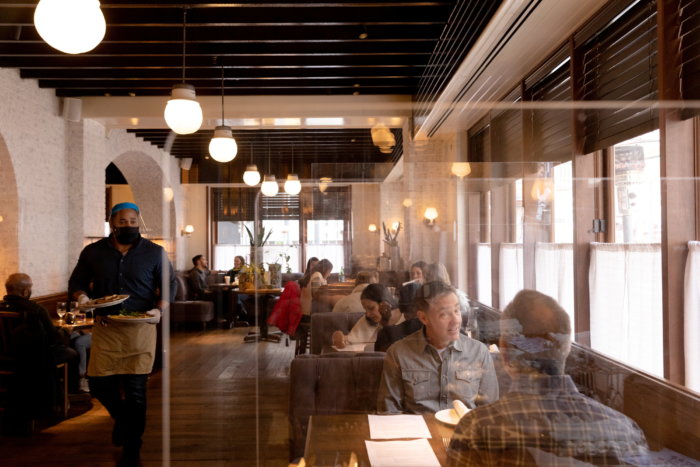
RISING NUMBERS
Philadelphia averaged 400 COVID-19 cases a day last week with a 6.1% positive test rate, a notable uptick from the prior week’s 287 daily cases and 5.4%.
On Tuesday, officials reported 533 confirmed cases, 160 probable cases and eight virus-related deaths.
COVID-19 hospitalizations in the city hit a low point March 7 at 203, but the number of patients has since risen to 318.
“Case counts are not only rising here in Philadelphia, but they’re also rising in southeast Pennsylvania as a whole and in Delaware, New Jersey, New York and in the New England states,” Farley said.
Event and restaurant limits will be eased in the city on April 30 if cases begin to decline, he said; however, officials did not commit to relaxing the restrictions to state levels and said restaurants will still likely have to meet air flow requirements.
By the end of next month, the city predicts that half of adult residents and 75% of those over the age of 65 will have received at least one dose of the vaccine.
There will be some smaller changes within city limits on April 4. Hotels will be allowed to serve food and drinks at business meetings, and max capacity for outdoor catered events will be increased from 100 to 250.
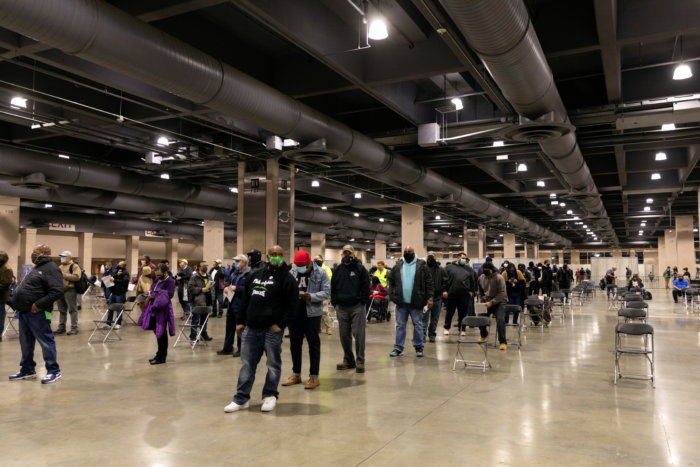
BACK FOR SECONDS
The Pennsylvania Convention Center, which has vaccinated more than 120,000 people, began administering second doses Tuesday.
The site, operated by the Federal Emergency Management Agency, will only be serving returning patients for the next three weeks. Nonetheless, links have been shared allowing people to secure first-dose appointments, officials said.
“We have many unauthorized appointments that people got over the internet or from a friend or on a Facebook post or another social media post,” Farley said. “We have canceled and are cancelling all unauthorized appointments.”
The Philadelphia Department of Public Health is sending emails to residents who were able to register for their first shot, and Farley said they will be turned away.
Problems with links being shared, and ineligible people being inoculated, have plagued the vaccine roll-out in Philadelphia and elsewhere.
After the second injections are distributed, the Convention Center will resume first doses for about two weeks, utilizing the one-dose Johnson & Johnson vaccine, Farley said. It’s estimated that they will be able to inoculate an additional 84,000 people through April 30.
Farley said negotiations are ongoing about extending FEMA’s stay at the Convention Center, but no deal has been reached yet.
Talks are also ongoing with the federal government to set up other mass sites around the city.
Philadelphia is set to receive 45,000 first doses this week, and officials have been told to expect similar numbers for the next couple of weeks.
Nearly 20% of the city’s population, or just over 306,000 people, have been vaccinated, according to health department data. Farley said that number is a low estimate, as the city is not counting residents who were inoculated in the suburbs.
